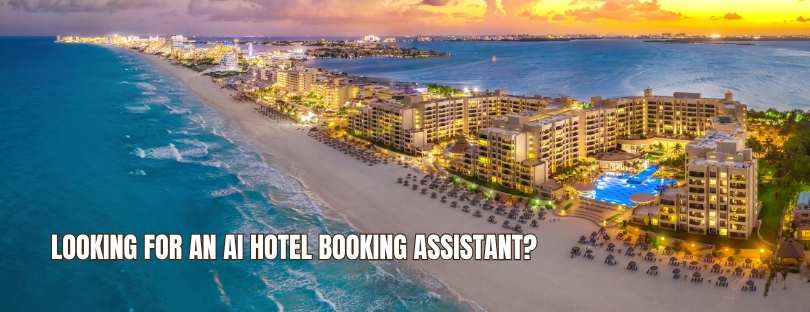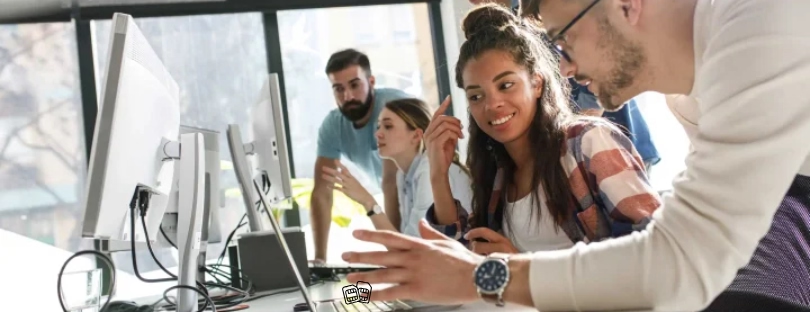
WTTC: AI Set to Revolutionise Travel & Tourism
The World Travel & Tourism Council (WTTC) and Microsoft have released a new report that highlights the transformative power of artificial intelligence (AI) for the travel and tourism industry. The report, titled “AI in Travel & Tourism: A New Era of Innovation,” explores how AI can be used to enhance customer experiences, improve operational efficiency, and drive sustainability.
The first in a series of AI reports, announced during the global tourism body’s event at FITUR and in collaboration with WTTC’s industry partner, Microsoft, is poised to redefine travel & tourism standards and call on the sector for greater integration of such technologies.
As the global leader in travel & tourism, WTTC is committed to driving innovation and supporting the sector to embrace AI and other cutting-edge technologies. To promote sustainability and excellent customer experiences, WTTC acknowledges the crucial importance of AI in revolutionizing the sector.
Throughout the traveller’s journey, WTTC believes AI can play a pivotal role in delivering a tailored and enhanced experience now and in the future.
This technology can empower personalized recommendations and marketing strategies by analyzing traveller data, optimizing pricing strategies through real-time adjustments, and offering instant responses and fine-tuned interactions via sophisticated AI-powered chatbots.
The report also highlights AI’s capabilities, which extend to predicting future demand patterns, efficiently allocating resources, and providing valuable insights for governments and travel & tourism stakeholders.
This contribution can be pivotal in promoting sustainability through efficient resource management by monitoring and minimizing environmental impacts, ensuring a more responsible and sustainable sector.
Examples of AI in Action
- AI-powered chatbots are being used by airlines to answer customer questions and resolve issues 24/7.
- AI is being used by hotels to personalize guest experiences, such as by recommending restaurants and activities based on past stays.
- AI-powered travel planning tools are being used to help travelers find the best deals on flights, hotels, and activities.
Julia Simpson, WTTC President & CEO, said:
“As we navigate the ever-evolving landscape of travel & tourism, AI emerges as a catalyst for positive change.
“The transformative capabilities highlighted in this report demonstrate that AI is not just a technological advancement; it is a strategic tool that can personalize the customer experience, drive sustainable improvements, and create real-time pricing models.”
Julie Shainock, Microsoft Managing Director Travel, Transport & Logistics, said:
“Using Microsoft’s Azure OpenAI Models across the travel sector allows greater productivity for companies and drives a more personalized consumer experience.
“For travellers, the ability to drive more inspiration and personalized offers at booking to providing tools to consumers to proactively assist them while in destination to anticipate their needs with relevant information to improve their journey. For travel companies, GenAI is there to increase productivity, automate the predictable, and allow our human-centric approach to the high-value moments in travel to shine more.”
Despite the increasing examples of AI applications in travel & tourism, the report reveals the sector lags behind other consumer-facing industries in AI adoption. AI’s surge across various sectors last year is now a relevant force, and the travel & tourism sector must act now to leverage its impact.
Challenges and Opportunities
Challenges that must be overcome by travel & tourism businesses include a shortage of AI-skilled workers, limited AI infrastructure, and the absence of a formal ‘AI strategy’ in many business plans.
Travel & tourism businesses are urged to embrace AI as a strategic priority, investing heavily in talent to foster collaboration between humans and AI.
Recommendations
The WTTC and Microsoft recommend that businesses in the travel and tourism industry take the following steps to embrace AI:
- Develop a clear AI strategy that outlines how AI will be used to achieve business objectives.
- Invest in AI training and development for employees.
- Build a strong ethical framework for AI use.
Amidst concerns about AI’s impact on jobs, the report addresses the potential for job creation, recognizing that although AI will be disruptive, it will, in turn, generate new opportunities.
In the quest for sustainable AI practices within the travel & tourism sectors, responsible data management emerges as a crucial strategy.
Implementing measures such as data minimization, efficient storage, and responsible data disposal becomes pivotal for organizations seeking to minimize their carbon emissions when using new digital technologies and reduce their AI environmental footprint significantly.
The report explores AI applications in society and business, emphasizing the need for safe and responsible Al system design in travel & tourism, signifying a milestone in the sector’s commitment to innovation and sustainability, and showcasing AI’s potential to shape a bright future for travel & tourism.
AI is rapidly transforming the travel and tourism industry. Businesses that embrace AI have the opportunity to create more personalized, efficient, and sustainable travel experiences for their customers.










